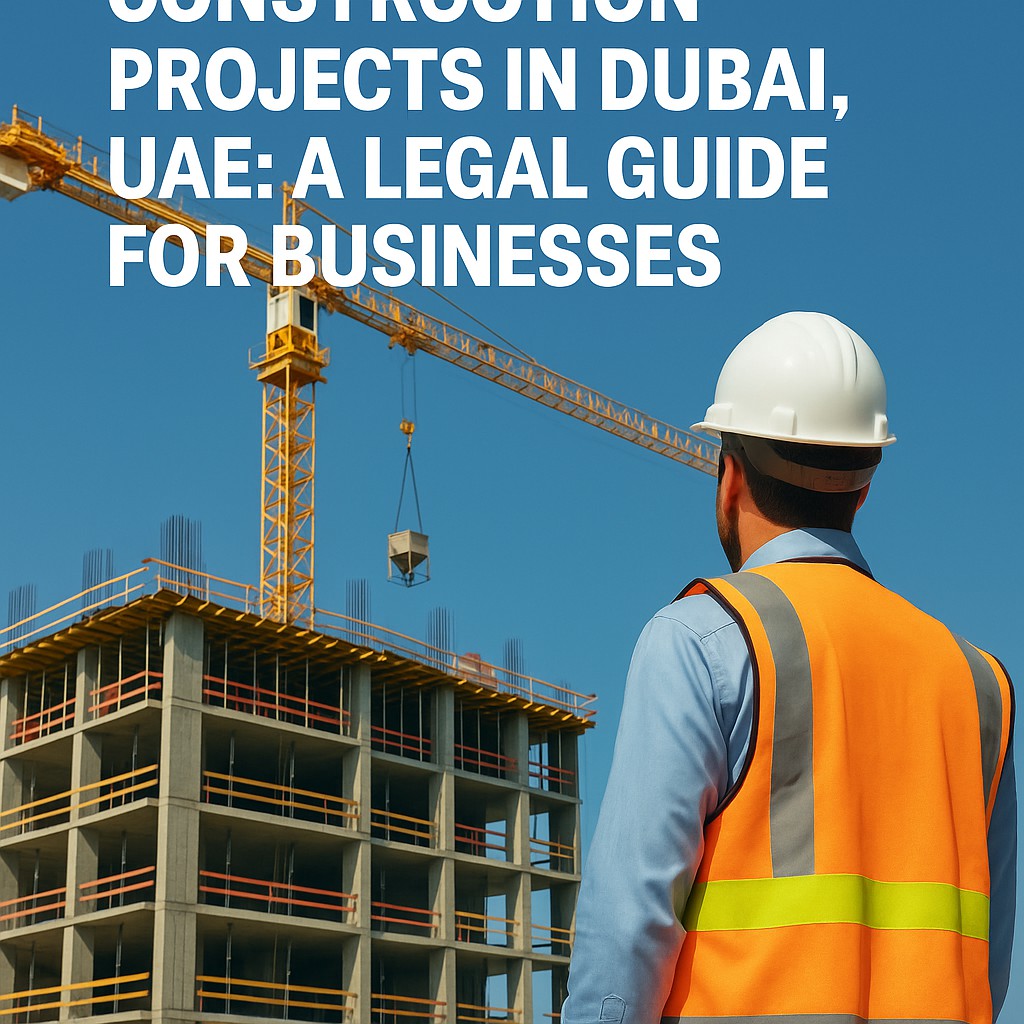In Dubai's competitive and fast-rising construction business, the value of well-drafted and carefully negotiated contracts cannot be emphasized. Construction contracts are the foundation of any project, defining the responsibilities, rights, and obligations of all parties involved. Given Dubai's complex legal environment, it is critical to ensure that these contracts are sturdy and thorough for project execution to go smoothly. This essay looks into the fundamentals of drafting and negotiating construction contracts in Dubai, focusing on critical issues and best practices.
Understanding the Legal Framework
Dubai operates under a civil law system, heavily influenced by Islamic law (Sharia). The legal framework governing construction contracts is primarily derived from the UAE Civil Code, Federal Law No. 5 of 1985, as amended. Additionally, Dubai has specific regulations and codes that must be adhered to, including the Dubai Building Code and various municipal regulations. Construction lawyers must be well-versed in these laws to ensure compliance and mitigate legal risks.
Key Elements of Construction Contracts
- Scope of Work: Clearly defining the scope of work is fundamental. This section outlines the specific tasks, deliverables, and services to be provided by the contractor. Ambiguities in the scope of work can lead to disputes and project delays.
- Project Timeline: Detailed timelines and milestones should be established to ensure that the project progresses according to schedule. This includes start and completion dates, as well as intermediate deadlines for various phases of the project.
- Payment Terms: Payment schedules, terms, and methods must be explicitly stated. This includes details on how and when payments will be made, any advance payments, retention amounts, and conditions for release of payments.
- Variations and Changes: Construction projects often require adjustments to the original plan. The contract should include procedures for managing variations and changes, including how they will be documented, approved, and compensated.
- Performance Guarantees: These are assurances provided by the contractor to the client, guaranteeing the quality and completion of the project. This may include performance bonds, warranties, and retention amounts.
- Dispute Resolution: Given the potential for conflicts, it is vital to include a dispute resolution clause. This outlines the mechanisms for resolving disputes, such as negotiation, mediation, arbitration, or litigation.
- Termination Clauses: Conditions under which the contract can be terminated by either party should be clearly defined. This includes scenarios for both default and non-default terminations.
- Force Majeure: This clause addresses unforeseen events beyond the control of the parties, such as natural disasters or political instability, which may impact the project's execution.

Best Practices for Drafting Construction Contracts
- Clarity and Precision: Contracts should be written in clear and precise language to avoid misunderstandings. Technical terms should be defined, and any ambiguous terms should be clarified.
- Customizing Standard Forms: While standard form contracts, such as those provided by FIDIC (International Federation of Consulting Engineers), are widely used, they should be customized to fit the specific needs and legal requirements of the project and jurisdiction.
- Risk Allocation: Properly allocating risks between the parties is crucial. This involves identifying potential risks and assigning responsibility to the party best able to manage them. Balanced risk allocation can prevent disputes and ensure smoother project execution.
- Legal Compliance: Ensuring that the contract complies with all relevant local laws and regulations is essential. This includes adherence to building codes, labour laws, safety regulations, and environmental standards.
- Documentation and Record-Keeping: Maintaining thorough documentation throughout the project is vital for resolving disputes and ensuring accountability. This includes records of communications, approvals, variations, and any issues that arise.
Negotiating Construction Contracts
- Preparation: Effective negotiation requires thorough preparation. This involves understanding the project's technical and legal aspects, as well as the interests and objectives of all parties involved.
- Collaborative Approach: Adopting a collaborative approach rather than an adversarial one can lead to more favourable outcomes. Building trust and fostering open communication can help identify mutually beneficial solutions.
- Flexibility: While it is important to protect one's interests, being flexible and willing to compromise can facilitate smoother negotiations. Finding a balance between the parties' needs is key to reaching an agreement.
- Legal Representation: Having experienced legal representation is crucial during negotiations. Construction lawyers can provide valuable insights, identify potential legal pitfalls, and ensure that the client's interests are adequately protected.
- Focus on Key Issues: Negotiations should prioritize key issues that have the most significant impact on the project's success, such as scope of work, payment terms, and risk allocation. Addressing these issues early can prevent conflicts later on.
Conclusion
The construction industry in Dubai operates within a complex legal framework, making well-drafted and carefully negotiated construction contracts crucial for the success of any project. Understanding the legal framework, key elements of construction contracts, best practices for drafting, and effective negotiation strategies are all essential components in ensuring the smooth execution of construction projects in Dubai.Construction lawyers in Dubaiplay a pivotal role in navigating these intricacies, providing valuable expertise and guidance to all parties involved in the construction contract process. Their deep understanding of local laws and regulations, coupled with their negotiation skills, is instrumental in safeguarding the interests of their clients and fostering successful project outcomes.













